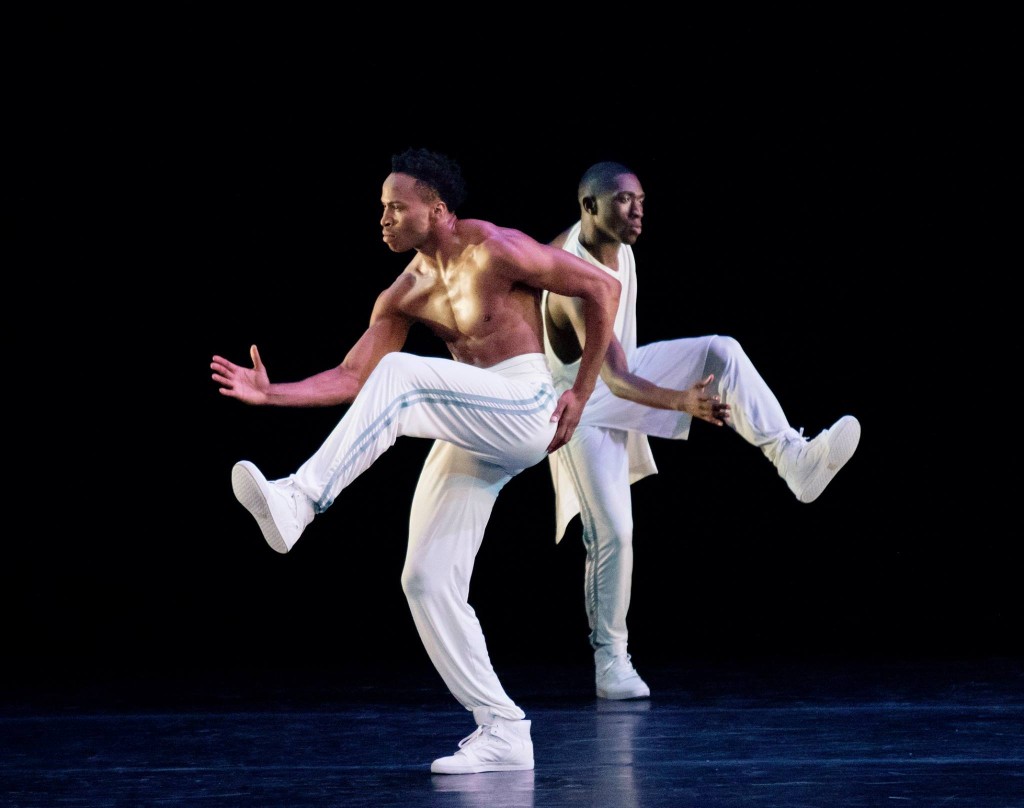
By Dontré L. Conerly
Like so many others responding to the current tensions in our country, the Alvin Ailey company added its voice to the swell of voices demanding #BlackLivesMatter.
In its five-week run at New City Center, the 2015 season of the Alvin Ailey company is ripe with social commentary on the state of affairs of Black life in America, from the alarming incarceration rate amongst African American men, to the string of police shootings aimed at (unarmed) Black men in this country.
Commissioned by acclaimed Hip Hop choreographer, Rennie (Lorenzo) Harris, the world premiere of Exodus combines the street beats of urban dance music with the rhythmic beats of the African diaspora, to create a work which offers a compelling melange of movement from across the urban landscapes of Black life.
Like sorrowful, billowy ghosts, the dancers flow through a detailed history of Black dance, where American hip hop dance moves, like the “Nae Nae,” cross oceanic borders to meet, in lockstep, with the undulating sway of the salsa; this soon swells in time with a soca beat which fuels the dance of the Masai in Africa’s heartland.
We are transported, through dance, on a rhythmic journey of the Middle Passage, to arrive at the understanding that Black Lives Matter. . .globally. The urban landscapes of Ferguson, Baltimore, and Minnesota are widened to include Soweto, Havana, and Nigeria. Their historic connectivity are underscored by the beat which pulses through the heartstring of all Pan-African dance.

Paying tribute to the woman Martin Luther King, Jr. anointed as “the queen of American folk music,” Odetta continues the poignant dialogue initiated in Exodus. Set to spoken word and music from some of America’s most beloved Black musicians (such as Harry Belafonte), Odetta provides historical context of the Black struggle in America.
Performing to gospel standards, such as “Motherless Child,” and “This Little Light of Mine,” Rushing’s work is an inspirational rally cry, fueled by the very voice and heartbeat of the woman whose activism gained her fame as “the voice of the Civil Rights Movement.” Dancer Hope Boykin leads the company in soul-stirring dance numbers which underscore the pivotal point that Black history is a part of American history, and there’s no better vehicle to explain this better than the Alvin Ailey American Dance Company.

We finish our journey with perennial favorite, Revelations. Choreographed by Alvin Ailey, himself, in the infancy of his company, this emotional masterpiece delights and enraptures audiences the world over. In the context of the 1960’s American landscape, we are reminded of the necessity of Revelations and the Ailey company; and how we are all the better for the creation of both.
Become a Harlem Insider!
By submitting this form, you are consenting to receive marketing emails from: . You can revoke your consent to receive emails at any time by using the SafeUnsubscribe® link, found at the bottom of every email. Emails are serviced by Constant Contact








